Goats have a reputation for eating anything they come across. However, even if your goat will eat whatever’s in front of them, it doesn’t mean they should. Some foods are bad for your goats and should be avoided.
One topic that comes up a lot is whether male goats can eat grain.
Can a male goat eat grain?
Goats can occasionally eat grain, but bucks shouldn’t eat grain because the added calcium can cause urinary stones that can be very painful or require medical procedures to resolve.
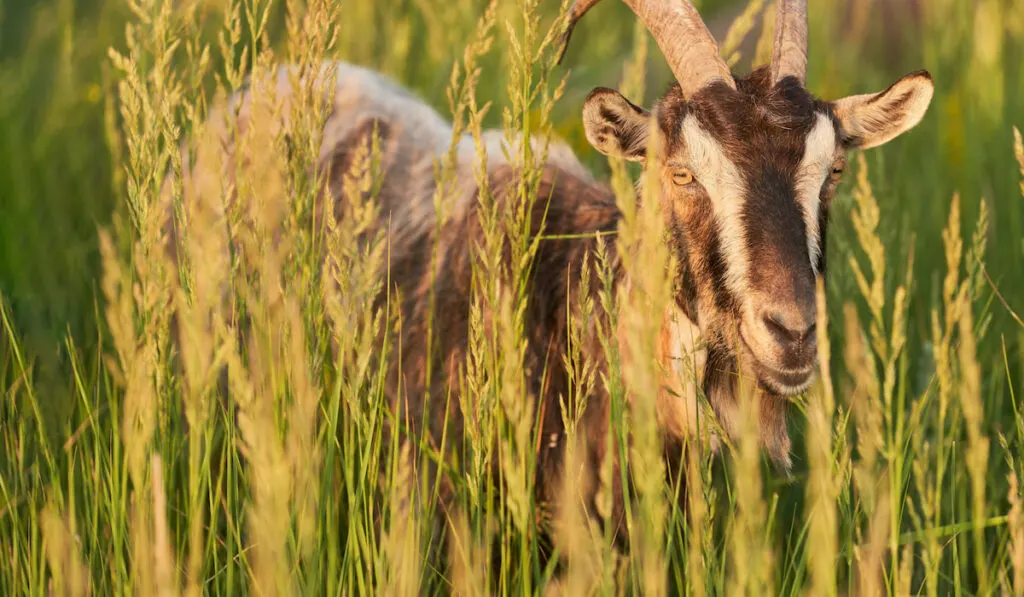
At most, you should only feed your goat grain sparingly. Too much grain can make your goats gain excess weight, leading to other health problems. Goats typically will eat as much food as they can stomach, so you can’t expect your male goats to put on the brakes when they’re feeling full.
If you’re wondering how to get your goats’ diets right and how to integrate grains into their diets, here’s some helpful information to get you started in the right direction.
Table of Contents
Why Grain Can Be Bad for Goats
We’ve already mentioned that grains can spike a goat’s calcium levels too high. In addition, young male goats don’t have the ability yet to process the calcium, so it can lead to urinary stones that are extremely painful.
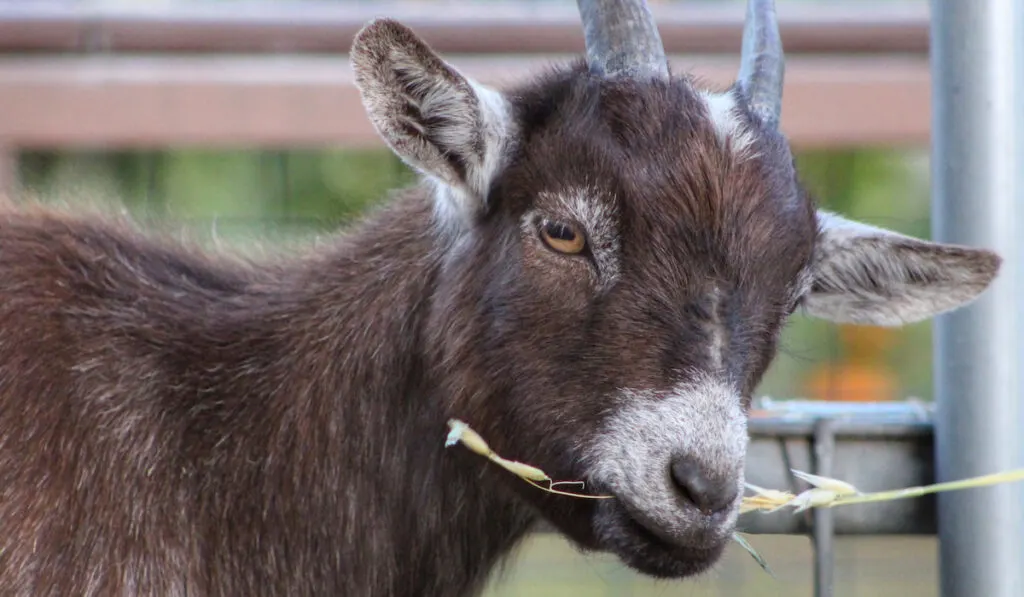
Grain is also generally higher in phosphorous, which is the main ingredient in calcium stones.
Additionally, most grains are low in protein and high in carbohydrates: They don’t have a lot to offer goats who don’t move around a ton.
If you’re looking to raise healthy and strong goats, you should fill their diet with a lot of protein, fiber, and vitamins.
For example, milking goats need a feed mixture containing around 16 percent protein. If you’re feeding your goats, and even female goats, a lot of grains, they may not have enough protein to get by.
Finally, when you feed goats too many grains, you essentially discourage them from eating other foods like hay that should be a staple and keep their bellies and digestive systems happy. Goats need a lot of roughage in their food to keep things moving inside.
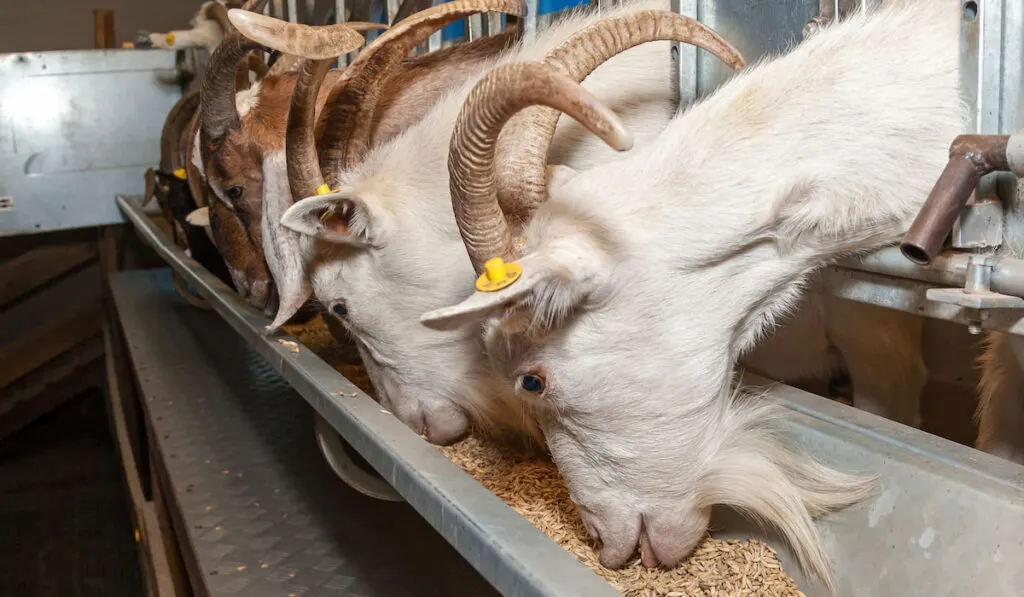
Balance Grains with Other Foods
Grain is an affordable food source; there’s no doubt about it. And goats enjoy eating grain, so many owners want to find a way to mix cost-effective grain with other feed.
Ideally, working goats will get more grain than other types of goats. If you’re raising goats as a pet or just to have on the homestead, for example, then you should avoid giving them grain because it will make them fat.
Working goats burn many more calories than idle goats, so giving them grains isn’t as much of a concern. They’ll burn off the calories, and their stomachs should be fine as long as they get enough roughage in their diets.
If you notice that one or more of your goats is losing weight, then you may want to supplement with grains to help them gain it back. When male goats compete with each other during the rut (breeding season), they can burn off a lot more calories and lose weight.
What Happens If a Goat Gets Kidney Stones?
OK, so we know now that grains aren’t for male goats, and young male goats should avoid them at all costs. However, what happens if they do eat grain and develop kidney stones?
What’s next?
First of all, what should you do? Here are some things to keep in mind.
Watch for Changes in Urine
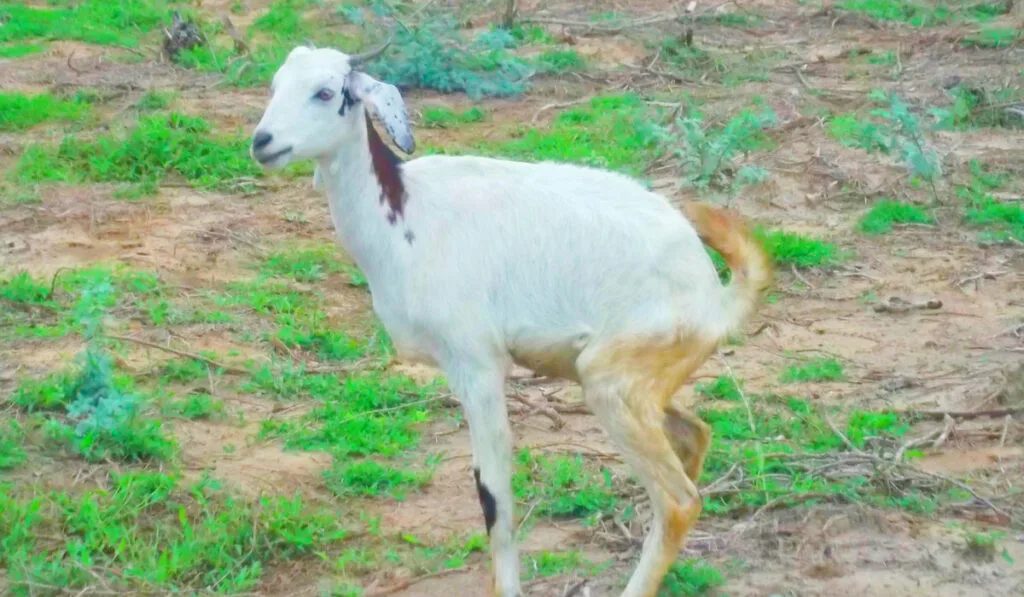
Is your goat not urinating as much or not at all?
Those are signs something is terribly wrong, and you should see a vet immediately. Also, if your goat is straining to urinate or making noises before they go to the bathroom, it’s an indication of urinary calculi (stones).
Watch out for excessive tail twitching as well. In addition, drops of blood in urine or crystals in the urine are symptoms of stones.
Obstructions Are More Serious
If the urine gets through the urinary tract, it can be very painful for the goat, but at least it’s not a complete blockage yet.
No urine can pass when enough calcium builds up or a stone lodges in the tract. Then, you typically have around a day or so before the bladder ruptures.
Medication vs. Surgery
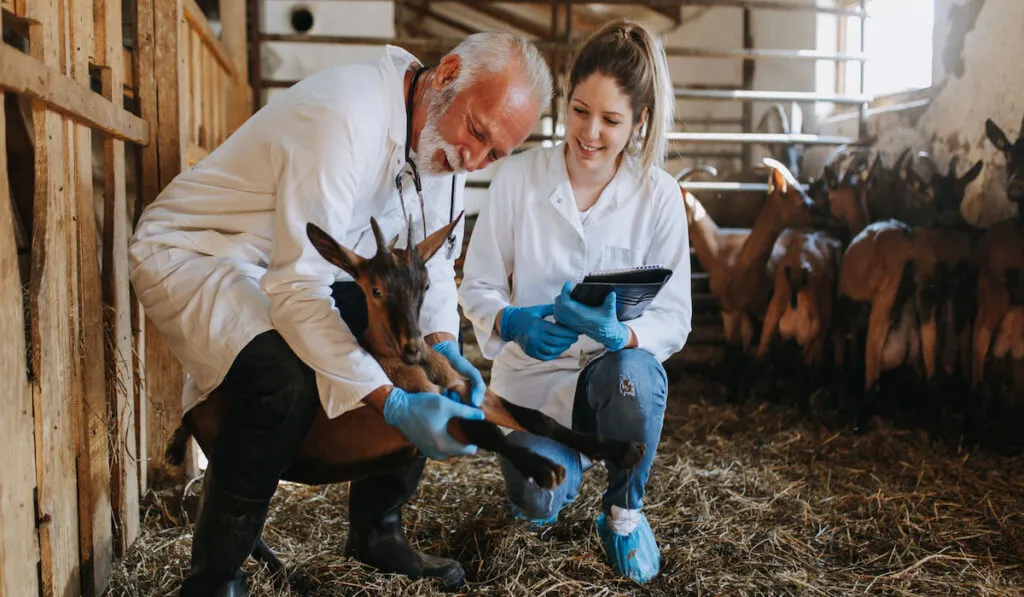
How early you take your goat to the vet usually determines how serious the medical intervention will be. Early trips to the vet can save you a lot of money and stress because calcium build-ups due to eating too much grain and other issues are solved with medication.
If, however, you wait too long and your goat’s bladder ruptures, then the only thing that can save them is surgery. Even then, the odds that your goat will survive are low.
The bottom line is that you should call your vet anytime you see abnormal behavior or if you think your goat is in pain.
It’s better to act early than to regret not picking up the phone.
What Your Goat Should Eat?
Instead of giving your male goats grain, here’s what you should try to feed them to keep them healthy and avoid any issues that will take you to the vet.
General guidelines say young goats (bucks) and castrated adult goats (wethers) shouldn’t eat grain. Instead, limit their diets to hay, alfalfa, and other roughage.
You should also supplement your goats’ diets with vitamins, minerals, and other things they need to stay healthy.
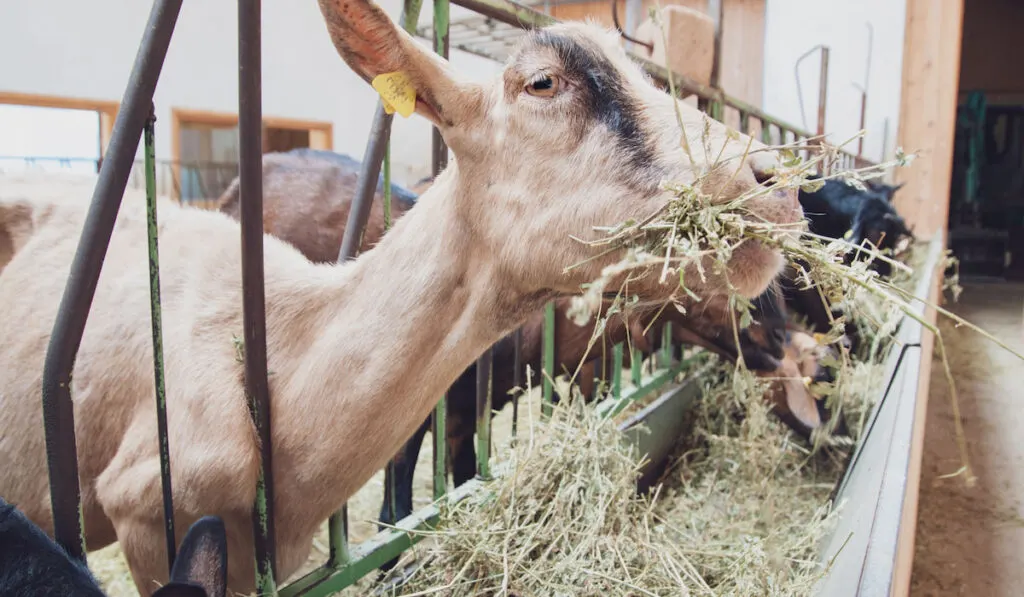
Make sure that your goats have constant access to clean water to prevent sickness, and you can also feed them the occasional treat of fruits like apples, bananas, grapes, etc. Vegetables like carrots, celery, turnips, etc., are a lovely treat to give goats as well.
Final Thoughts
Research what you should be feeding your male goats at their different life stages. Young goats, for instance, are much more delicate than adult goats, so they require more food preparation and can’t digest many of the same foods that adults can.
